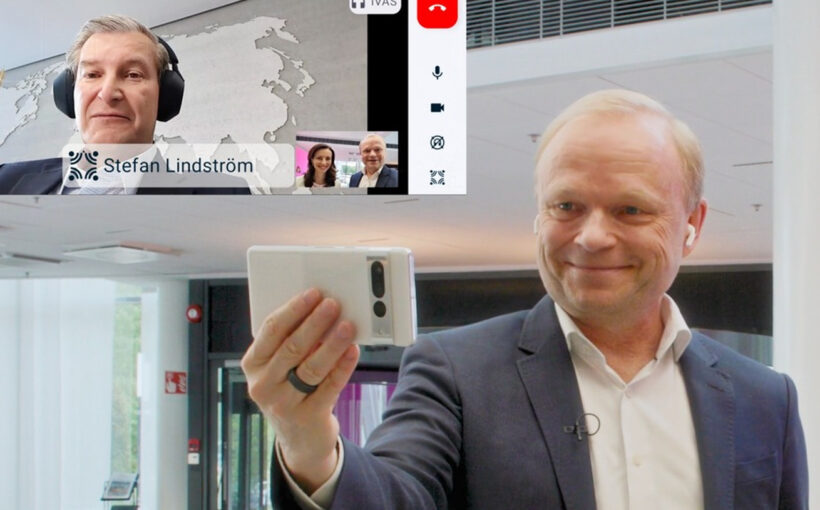
Nokia has made the first audio and video call using 3D spatial audio, the company announced on Monday. It placed the call over a cellular network using the 3GPP Immersive Video and Audio Services (IVAS) codec, allowing callers to hear “sound spatially in real-time.”
The IVAS codec is part of 5G Advanced, an upcoming upgrade to 5G networks that could offer faster speeds, improved energy efficiency, more accurate cellular-based positioning, and more. Currently, all phone calls made over a cellular network are monophonic, meaning audio is compressed into a single channel. Spatial audio, on the other hand, makes it seem like sounds are coming from different directions as they’re delivered through multiple channels.
Some apps, like Apple Music, Netflix, and Disney Plus, offer spatial audio for a more lifelike listening experience — but only on supported listening devices. The IVAS codec could enable spatial audio in a “vast majority” of smartphones with at least two microphones, Nokia tells Reuters. “This is now becoming standardised … so the network providers, chipset manufacturers, handset manufacturers can begin to implement it in their products,” Nokia president Jenni Lukander says.
Nokia is just one of the companies working to get the IVAS codec into 5G Advanced. But, as pointed out by Reuters, we likely won’t see the more immersive audio and video calls on our cellular networks for a few more years.



